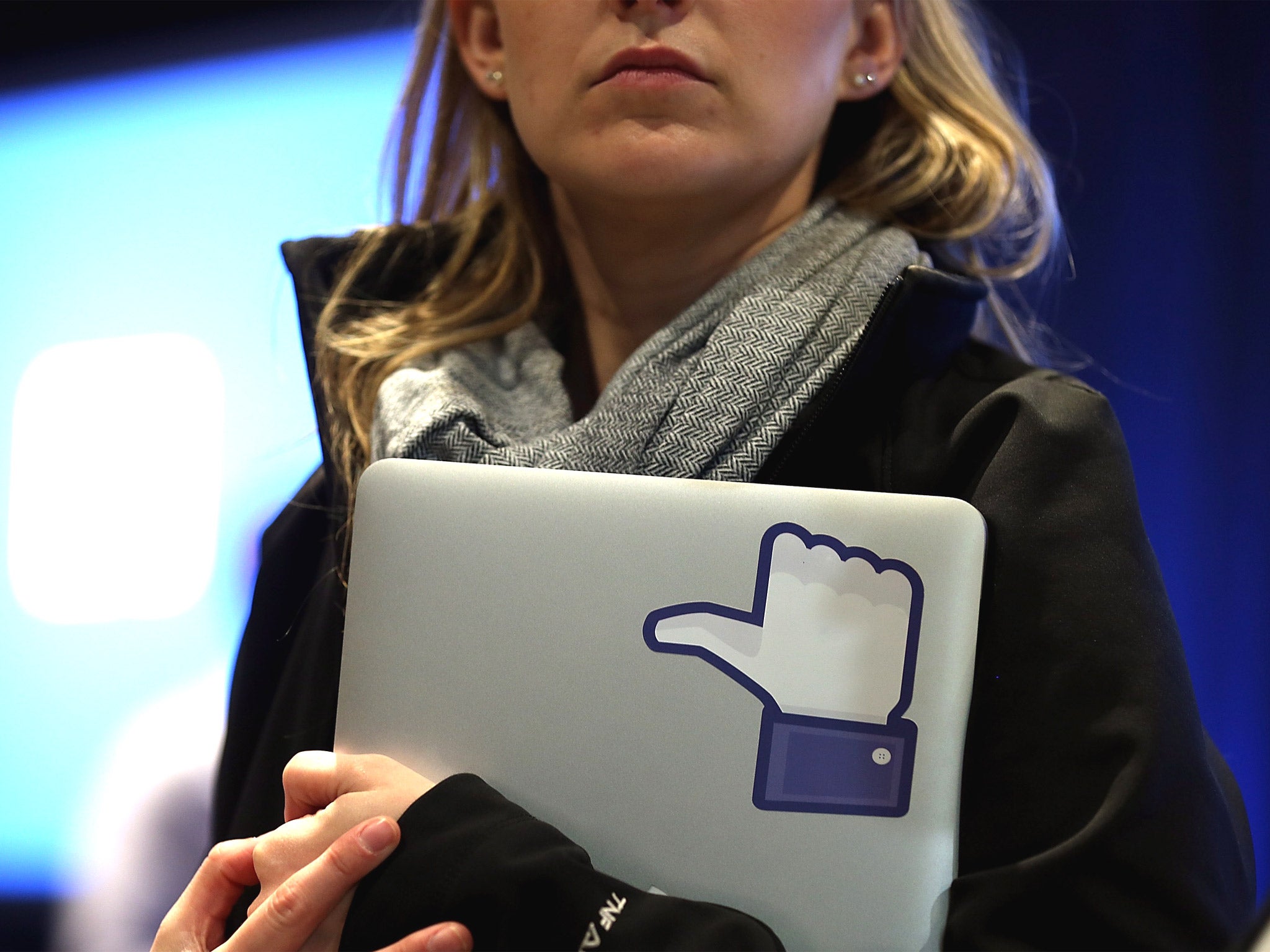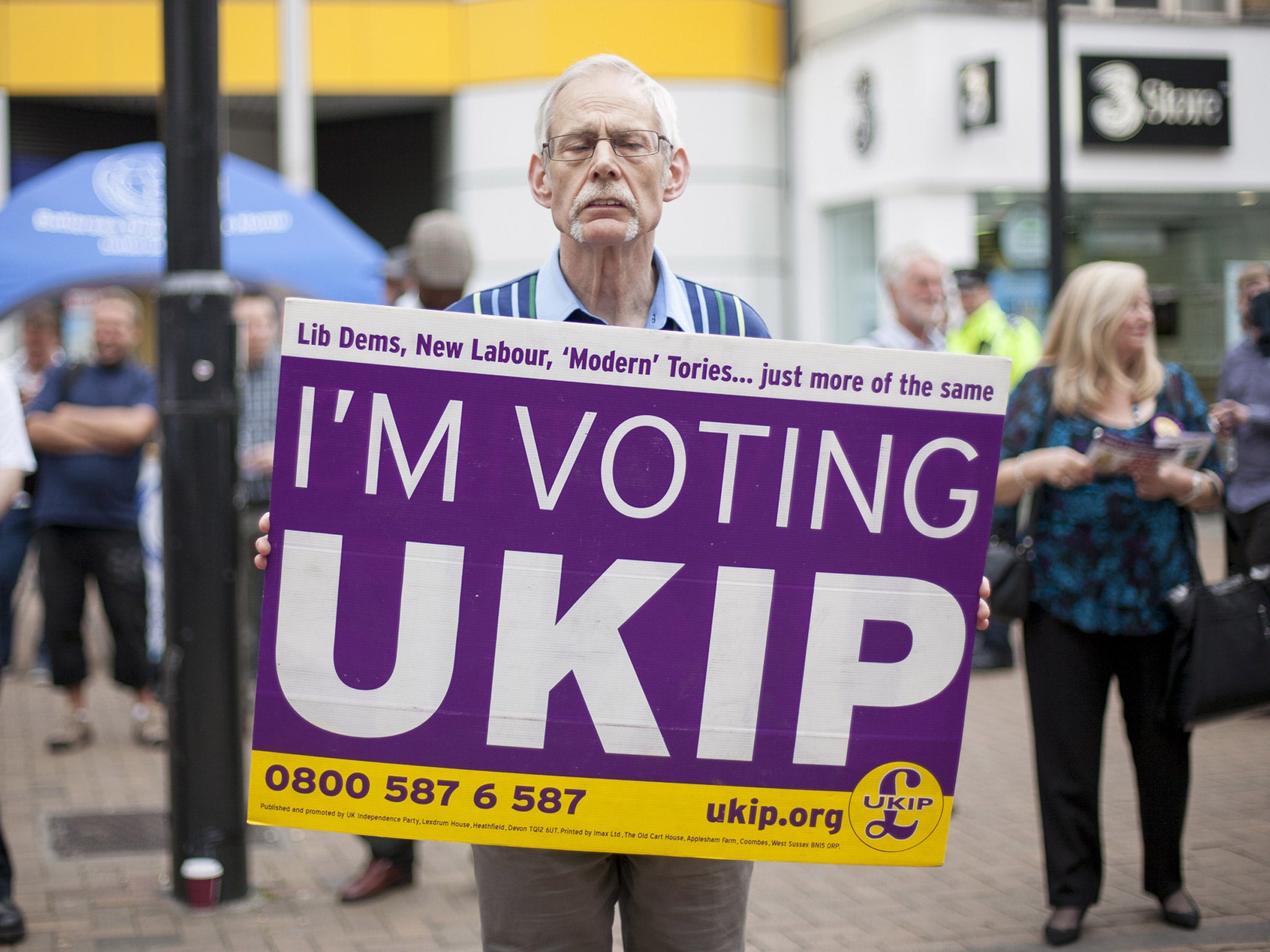Will Facebook save democracy? 'I'm a Voter' feature launches across Europe in time for parliamentary elections
Nigel Farage and political gaffes may light up Twitter, but can an appeal to Facebook users' narcissism also persuade people to visit a ballot box?

Your support helps us to tell the story
From reproductive rights to climate change to Big Tech, The Independent is on the ground when the story is developing. Whether it's investigating the financials of Elon Musk's pro-Trump PAC or producing our latest documentary, 'The A Word', which shines a light on the American women fighting for reproductive rights, we know how important it is to parse out the facts from the messaging.
At such a critical moment in US history, we need reporters on the ground. Your donation allows us to keep sending journalists to speak to both sides of the story.
The Independent is trusted by Americans across the entire political spectrum. And unlike many other quality news outlets, we choose not to lock Americans out of our reporting and analysis with paywalls. We believe quality journalism should be available to everyone, paid for by those who can afford it.
Your support makes all the difference.Thursday morning Facebook users in the UK will be greeted not just by the usual medley of selfies and status updates, but also by a small banner reminding them - unobtrusively but firmly - that today is "Election Day.”
The banner is the result of Facebook global roll-out of a feature named “I’m a Voter” that made its first appearance in American news feeds during the 2010 midterms. However, this year it will be accompanying elections everywhere from Colombia to South Korea – and, of course, popping up all over Europe for this week’s parliamentary elections.
Speaking to The Independent, Facebook’s head of political outreach Katie Harbarth, said that the feature was a “natural fit” for the social network, dovetailing with its mission to “make the world more open and connected” – as well as perhaps giving people an opportunity for a quick humblebrag about their democratic credentials.
Harbarth points out that in 2013, elections were the second most talked about topic on Facebook– second only to the one-man social-media goldmine that is Pope Francis – and that with 26 million daily active users in the UK, the social network has “become the place where people are having these conversations as well as getting a lot of their news."
Building a sense of political identity into Facebook certainly plays to the site’s strengths, offering users another avenue for self-expression as well encouraging the sort of public spat that can make the social network feel lively and relevant.
Some people might decry this as another example of narcissism in digital life (‘does anyone care that you voted?’) but it might also have a beneficial effect for democracy. A 2012 study published in the journal Nature showed that Facebook’s US ‘I voted’ button encouraged (or shamed) an additional third of a million voters to hit the ballot box in 2010.
James Fowler, the lead author of the research, said the research “suggests that social influence may be the best way to increase voter turnout. Just as importantly, we show that what happens online matters a lot for the ‘real world.’”
With turn-out among first-time voters predicted to drop to around 27 per cent across Europe for this year's parliamentary elections, it seems that even a small bump would be appreciated.
And not only is the peer pressure useful – Facebook also provides an ideal method to disseminate basic facts such as poll station locations. For first-time voters especially, delivering this sort of information at the right time and in the right place could be the difference between ‘yeah, why not, I’ll vote’ and not bothering at all.
Some organizations have said that this doesn’t go far enough though, with research published this month by Swing the Vote showing that almost half of 16-to-25-year-olds wanted to see more information about policies and pledges on social networks.

Not everyone thinks that social media will be democracy’s panacea though. Michael Sani, the managing director of Bite the Ballot, said that although initiatives likes Facebook’s “I’m a Voter” button were “undoubtedly positive” they didn’t address the whole issue.
“It doesn’t rectify the core problem, which is a lack of engagement and education in school,” Sani told The Independent. “It’s such a huge black hole in this country, where people just aren’t educated and that initial spark isn’t created from a young age.”
There’s also the criticism that although social networks like Facebook allow users to share messages about their political alignment, they might also shut down debate by tailoring the content that users see to keep them happy and clicking.
This argument – the so-called ‘Filter Bubble’ proposed by Eli Pariser in 2011 – applies to all of the web, and refers to how site’s algorithms tend to resurface content that they know the user likes, leading, in Pariser’s assessment, to “a world constructed from the familiar is a world in which there’s nothing to learn.”
However, this sort of problem isn't likely to affect something as simple as Facebook's voter button, and with governments across Europe becoming ever more desperate to get young people interested in elections (see Denmark's recent sex-and-violence pro-democracy message for a how-not-to-do-it) anything that persuades more people to make a trip to the ballot box can only be a good thing.
Join our commenting forum
Join thought-provoking conversations, follow other Independent readers and see their replies
Comments